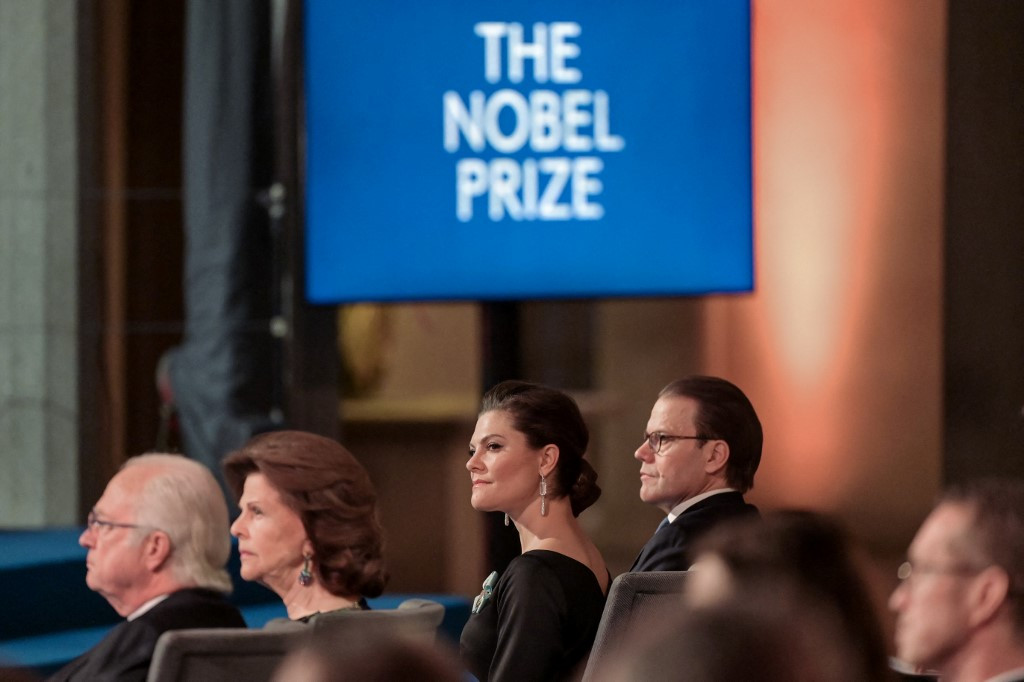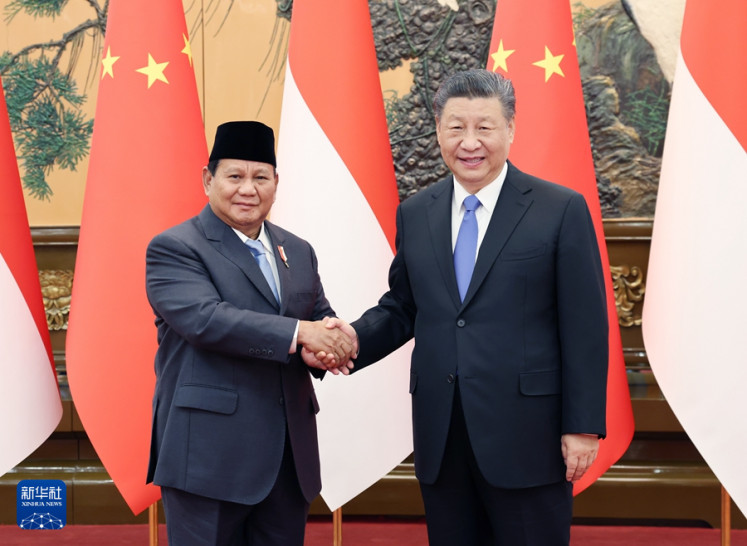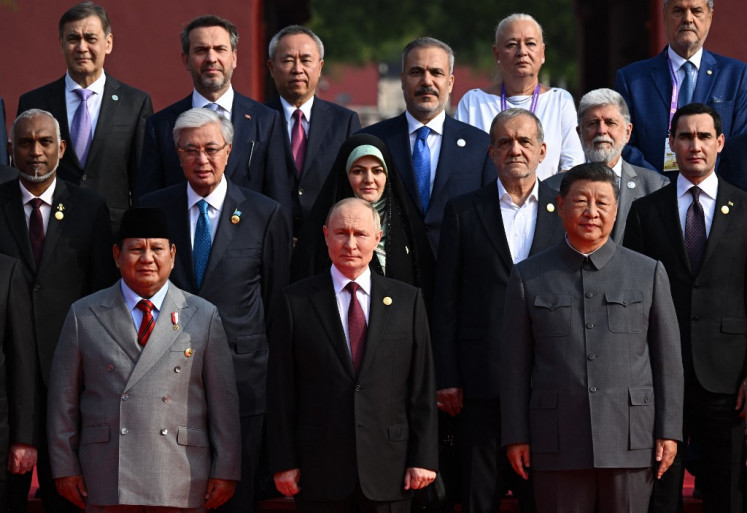Popular Reads
Top Results
Can't find what you're looking for?
View all search resultsPopular Reads
Top Results
Can't find what you're looking for?
View all search resultsLabour or altruism tipped for Nobel economics prize
The final gong of the year will be announced at 11:45 am (0945 GMT) on Monday.
Change text size
Gift Premium Articles
to Anyone
T
he Economics Prize on Monday concludes this year's Nobel awards, with experts on labour, poverty and altruism tipped to win against a backdrop of economic turmoil.
The final gong of the year will be announced at 11:45 am (0945 GMT) on Monday.
While predicting the winner is always tricky, one area which is unlikely to get the ultimate accolade is work on monetary policy, according to Hubert Fromlet, professor of international economics at the Linnaeus University in Sweden.
Central banks around the globe are struggling to curb inflation and the professor, who keeps his own list of Nobel candidates, said monetary policy "has failed so much and there is no good theorist who has, so to speak, guided them correctly".
Fromlet also said he would be "almost disappointed" if no woman was among the laureates this year.
Of all the Nobels, the economics prize has the fewest number of female winners (just two) since it was first awarded in 1969 -- Elinor Ostrom in 2009 and Esther Duflo in 2019.
A favourite to become the third is US labour economist Claudia Goldin.
"She has studied women in the workforce. She has studied pay gaps between men and women.
"But she's also studied the role of the value of education in economic terms. She's done a lot," said David Pendlebury, head of research analysis at the Institute for Scientific Information at Clarivate, which monitors potential science laureates.
If Goldin were to win the Nobel, she might share it with Britain's Richard Blundell, another labour expert, Pendlebury told AFP.
'Unusual but interesting'
Other labour economists who could be honoured are Belgium's Marianne Bertrand and US-Canadian Janet Currie, a specialist in anti-poverty policies.
American Anne Krueger -- formerly the number two and briefly the managing director at the International Monetary Fund (IMF), and a former Vice President for Economics and Research at the World Bank -- has been the subject of Nobel buzz in recent years.
Pendlebury also cited Sam Bowles and Herbert Gintis of the United States as potential winners.
Both are specialists in altruistic cooperation, whose work contrasts with the principles of individualism of classic theory.
"They would be an unusual but interesting choice, I think, for the Nobel Committee because since the 60s they have explored a different kind of model of economic behaviour -- one that valorises altruistic cooperation," Pendlebury said.
He added that the pair could be viewed as an unorthodox choice since they were tarred as "Communists" earlier in their career.
"They're not really Communist. They have a different perspective," Pendlebury stressed.
French economists Olivier Blanchard, former chief economist at the IMF, and Thomas Piketty, who rose to prominence with his book "Capital in the Twenty-First Century", have also been featured in discussions on winners in recent years.
The trio Ernst Fehr (Switzerland/Austria), Matthew Rabin (US) and Colin Camerer (US) have also been mentioned in the past, as well as international trade specialists Elhanan Helpman (Israel) and Gene Grossman (US).
The economics prize, set up by the Swedish central bank, was the only award absent from the original five created by scientist Alfred Nobel, sometimes earning it the moniker of "false Nobel".
Last year, the honour went jointly to Canada's David Card, Israeli-American Joshua Angrist and Dutch-American Guido Imbens for research that "revolutionised" empirical work in their field and brought better understanding of how labour markets work.










